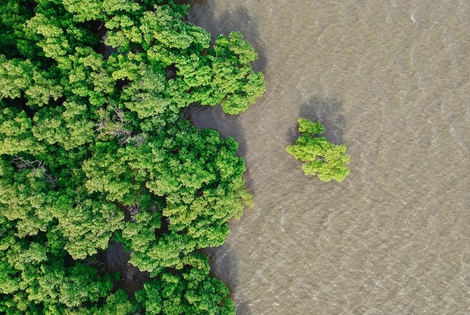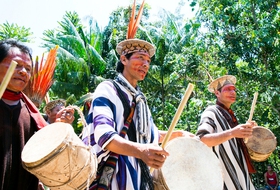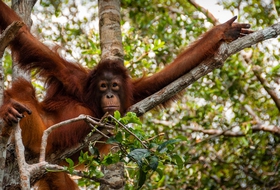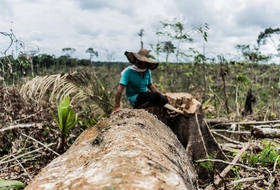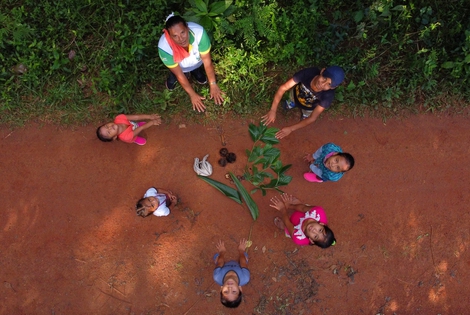
The Amazon became an alternative classroom during the pandemic. Now, the educational forest in Batraja, Bolivia, lives on to teach children and adults the value of nature.
Per produrre il costoso caffè Kopi luwak gli animali vengono imprigionati, sfruttati e maltrattati.
The world’s most refined coffee, or at least the most expensive, is made of excrements. The Kopi luwak coffee is in fact produced from the seeds of coffee berries that are eaten and defecated by a curious animal, the Asian palm civet (Paradoxurus hermaphroditus).
The Asian palm civet is a small mammal of the Viverridae family and is similar to a mongoose. This animal is native to China, Southeast Asia, Java, Sumatra, and other islands of Indonesia and Philippines, and eats coffee berries, without digest them.
The Kopi luwak coffee is obtained from these berries, taken from the animal’s faeces, and it is sold for some 800 euros per kilogram, i.e. 12 euros per cup. Initially, producers only collected faeces from wild civets, but when the coffee started becoming hugely popular worldwide, problems begun to rise for these funny animals.
Civets are currently caught in the wild, kept in small cages and force fed the coffee beans, which represent only a small part of their omnivorous diet. Animals are thus deprived of their freedom and natural spaces, leading to diseases, depression, and neurotic behaviours. Facts similar to what happens to moon bears for their bile.
Usually, civets are exploited for 3 years and then released, but their conditions are often compromised and they don’t survive. Alongside the horrifying practices carried out on these animals, which species is already threatened by illegal logging, the quality of the coffee is compromised, too.
In the wild, Asian palm civets select berries, favouring ripe fruits containing sweeter beans. In captivity, instead, there’s no selection process, animals are fed berries with different stages of ripening, to the detriment of the taste of coffee.
You have to be brave to drink a coffee produced from excrements, but even braver to drink it when you know the horrifying truth behind its production.
Siamo anche su WhatsApp. Segui il canale ufficiale LifeGate per restare aggiornata, aggiornato sulle ultime notizie e sulle nostre attività.
![]()
Quest'opera è distribuita con Licenza Creative Commons Attribuzione - Non commerciale - Non opere derivate 4.0 Internazionale.
The Amazon became an alternative classroom during the pandemic. Now, the educational forest in Batraja, Bolivia, lives on to teach children and adults the value of nature.
Our species took its first steps in a world covered in trees. Today, forests offer us sustenance, shelter, and clean the air that we breathe.
Bangladesh suffered widespread damage as a result of Cyclone Amphan. Yet the Sundarbans mangrove forest acted as a natural barrier protecting the country from further destruction, as it has done countless times before.
On top of a 2.4 million dollar compensation, the indigenous Ashaninka people will receive an official apology from the companies who deforested their lands in the 1980s.
The tapir was reintroduced into Brazil’s Atlantic Forest, the country’s most at-risk ecosystem. The species can play a key role in the forest’s recovery.
Forests are home to 80 per cent of the world’s terrestrial biodiversity. This year’s International Day of Forests highlights the urgent changes needed to save them.
After a legal battle that lasted two years, Indonesia’s Supreme Court has revoked the permit to mine for coal in the forests of South Kalimantan in Borneo.
The list of human and animal victims of the Australia wildfires keeps growing – one species might already have gone extinct – as the smoke even reaches South America.
Areas where the FARC guerrilla used to hold power in Colombia have faced record deforestation. Farmers cut down trees, burn land and plant grass for cows. Because, “what else can we do for a living here in the Colombian Amazon”? An intimate report from the heart of the felled forest in Caquetá.

